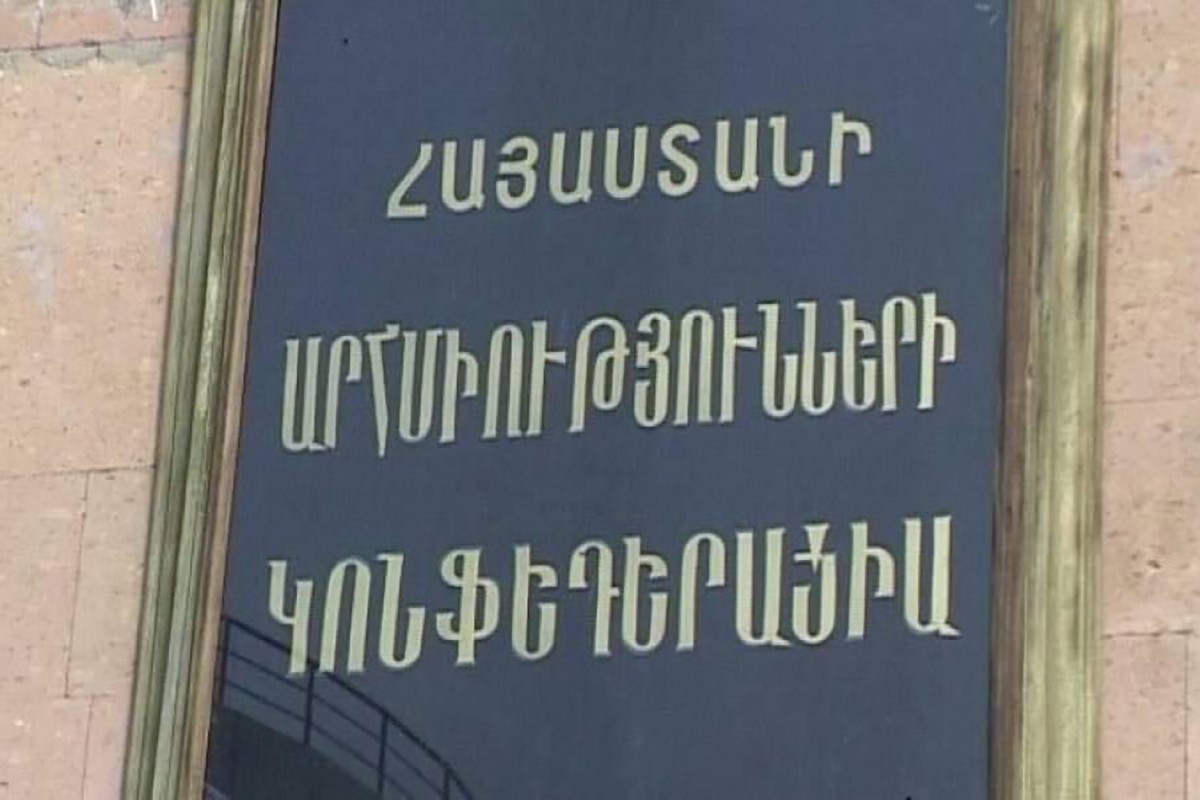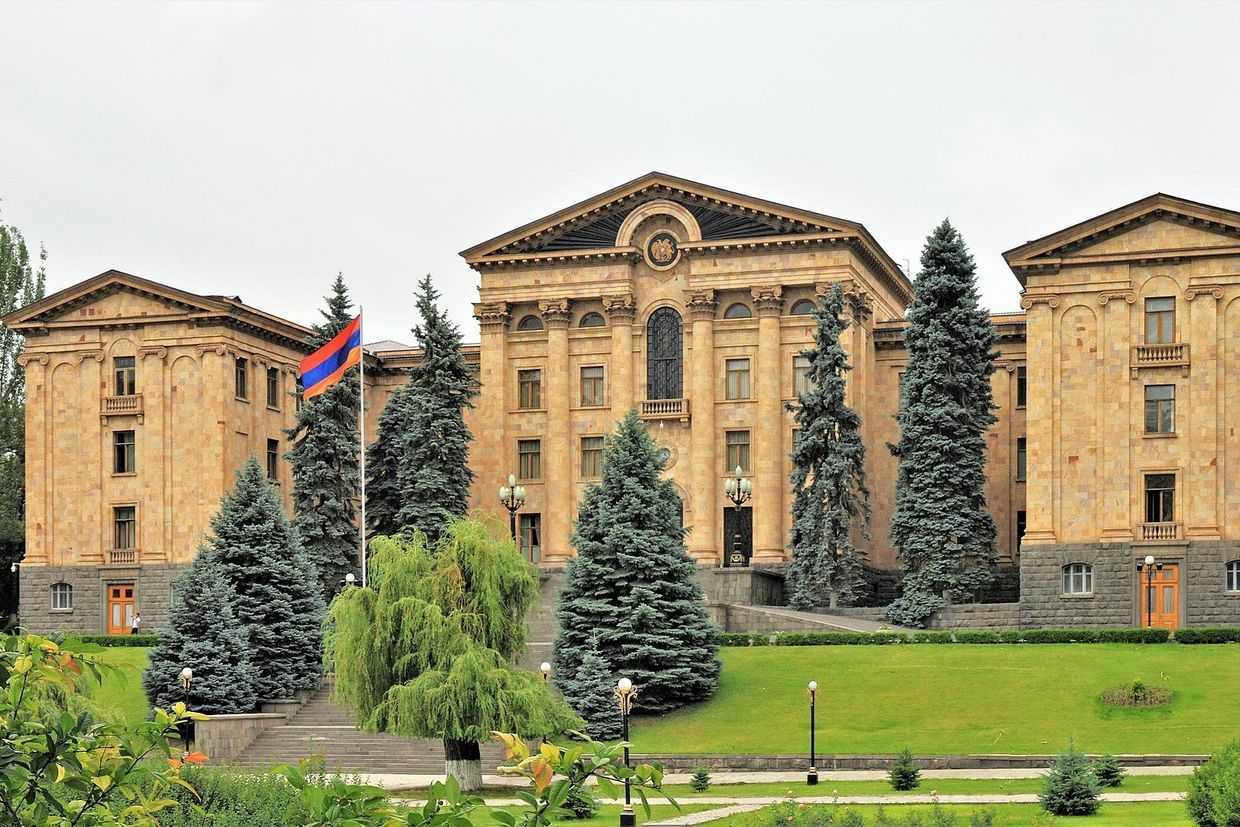
The legacy of Soviet labour relations and legal obstructions to striking have left Armenian trade unions with a poor reputation and little history of effecting change. But with fresh leadership in Armenia’s Confederation of Trade Unions, change seems newly possible.
‘The unions in Armenia are still widely perceived as an entity that works for the benefit of the employer — not the employee.’ This is how Tiruhi Nazaretyan, a lawyer and deputy head of the Confederation of Trade Unions of Armenia described the current situation in the country.
Nazaretyan was elected in October 2022 as one of a new generation of union bosses seeking to reform the country’s trade unions from top-to-bottom, putting labour rights on the agenda while cleaning up their tarnished image.
‘People see [unions] as something that would organise vacations and gather money for birthdays’, Nazaretyan admits.
‘If workers believe that the purpose of the union is organising such things, they will make the union fulfil that certain task’, she says, adding that this is one of many issues they hope to address.
`‘Another problem is that neither the unions nor the media were eager to publicise changes or problems’, says Elen Manaseryan, the newly elected head of the confederation. Manaseryan tells OC Media that closer cooperation with journalists is a new strategy they are committed to.
The confederation in action
Despite the Soviet Union collapsing 30 years ago, labour unions in Armenia are still struggling to find their place in society.
All unions in Armenia are part of the Confederation of Trade Unions, which operates in a pyramid structure — unions of individual enterprises fall under their local sectoral unions, which come under the umbrella of the national sectoral unions, or branch unions. There are 18 such branch unions of different sectors that form the Confederation of the Trade Unions of Armenia.
The confederation cites Armenia’s mining sector, a crucial sector of the Armenian economy, as a successful example of unionisation.
It is also a field rife with occupational hazards including cave-ins, explosions, extreme temperatures, and dust that can trigger respiratory diseases.
[Read on OC Media: ‘We all have bronchitis’ — the blackened lungs of Georgia’s coal miners]
As a result, mining unions are some of the most influential in the country as they are both well-connected and spread out. Unions have, for example, successfully managed to secure an agreement with the Zangezur Copper Combine — one of the largest companies in Armenia — to guarantee a healthcare budget dedicated to addressing the health needs of miners.
Eduard Pahlevanyan, the president of the Republican Branch Union of Trade Unions of Mineworkers, tells OC Media how the confederation recently represented the head of Plant of Pure Iron Union in a legal battle against the company.
The company’s union leader had attempted to speak up against labour law violations in their workplace, afterwhich he was fired for infractions that Pahlavenyan insists were fabricated. The branch union took the case to court in November.
Though the head of Plant of Pure Iron’s union took the initiative by seeking legal recourse, many other workers opt to remain silent to abuses and violations they experience at their workplace. This, the head of the confederation believes, might stem from a general mistrust towards the judiciary combined with a lack of public awareness.
‘If any of the members of the unions are in trouble, the confederation is ready to provide them with a lawyer and help them until the end’, says Manaseryan.
Since the confederation and its subsidiary unions largely depend on membership fees to keep their doors open, it has to prioritise its members. However, those who are not part of the confederation are given a free consultation to help them plan their next move.
Stalled reforms
Throughout its independence, Armenia has struggled to address the demands of unions and workers. It was not until 2018 that Armenia’s post-revolutionary authorities promised to address issues such as minimum wage and working conditions.
The promise of such reforms, however, has come to a standstill since the Second Nagorno-Karabakh War.
But the new leadership of the Confederation of Trade Unions intends to continue to push for such reforms.
Elen Manaseryan has used her role as head of the confederation to campaign for an increase in Armenia’s minimum wage, currently just ֏75,000 ($190) per month, and for the legalisation of strikes, but has so far been unable to find the political support needed to commit these changes.
The issues preventing employees from challenging their employers are both individual and systemic. While many employees choose not to speak up about violations in their workplace for fear of losing their jobs, even if they do want to protest workplace issues, striking is not legal in Armenia.
Armenian legislation prevents workers from resorting to most forms of labour strikes — a standard tool of escalation in other countries often seen as critical to protecting workers’ rights. This usually leaves Armenian unions with negotiations as the only legal avenue to pursue meaningful changes in working conditions.
However, Armenian law does prescribe certain criteria to allow workers to strike: unions are allowed to organise strikes if a company was in breach of an agreement signed between the union and the employer.
Pahlavenyan, the head of the mining union branch, says that unions do not encourage strikes at an organisational level, as it is ‘not the best way to reach an agreement with the employer’, but that if a union-employer agreement is breached, branch unions and the confederation are ready to offer their support to striking workers.
Unfortunately, most small unions spread around the country do not have collective agreements with their employers, and the bureaucracy required to organise a strike ‘decreases passion’, says Manaseryan.
Manaseryan adds that the confederation has pushed for amendments to labour laws to allow for more spontaneous striking, but she remains sceptical that workers would currently resort to them.
‘I doubt that workers would strike even if they were given the legal mechanisms to do so effectively’, she told OC Media. ‘The culture of getting jobs through [nepotism] is still prevalent in Armenia.’
‘This reduces the chances of strikes and, in general, prevents workers from speaking up about their rights.’
For Tiruhi Nazaretyan, the deputy head of the Confederation, convincing workers that trade unions are on their side now remains one of the biggest challenges facing the unions.






